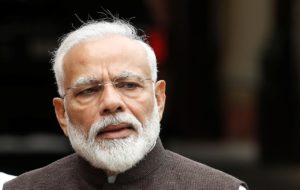A Litmus Test for Cash Transfer of Subsidies
(The government recently announced direct cash transfer scheme for subsidies terming it as a game changer for the UPA. However, the pilot project for testing the scheme, which was launched in Rajasthan last year, failed. But, it was projected as a success by the government. The summary of the field observations reveals the reality of the claims made by the government. The question is not only about the cash transfer for the subsidies; it should be seen as a first step towards the whole mindset and chronic capitalist ideology of withdrawing the subsidies from the poor. This is an absurd attempt by the government and it goes against the basic character of our constitution and the government as a welfare state. – Pratirodh)
The schemeHouseholds used to get kerosene from Fair Price Shops (FPS) at a highly subsidized rate. Under the new system, they pay the market price (now Rs 49.50/litre) and the subsidy (difference between the market price and the subsidized rate) is paid into their bank account.An advance subsidy for three months is paid at the beginning. From then on, the subsidy is paid every three months based on the household’s kerosene purchases in the last three months, as recorded in the FPS dealer’s sales register.This scheme has been designed to curb leakages: under the new system, a dealer gains nothing from inflating his sales register and selling the difference in the open market, as many dealers used to do.Households’ viewpointThe poorest households seem to be the worst hit under the new system. For them, going to the bank to collect the subsidy means losing a day’s wages and also transport costs. For some households, these transaction costs exceed the subsidy.The payment of subsidies is very erratic and untimely. Many households are yet to receive any subsidy, despite shelling out Rs 500 to open a (supposedly “zero-balance”) bank account. Others do receive subsidy from time to time, but in an arbitrary manner, not clearly related to their purchases.Because of this erratic and unpredictable payment of subsidies, many households have curtailed their kerosene purchases: it is quite difficult for them to spare Rs 150 to buy just 3 litres of kerosene, and they are reluctant to do it in the absence of any guarantee of timely subsidy payment.Households with better cash reserves and a better command of the system were not unhappy with the new system. They did not mind it as long as the payment of subsidies was timely and regular.Dealers’ viewpointThe new system has undermined the viability of the Fair Price Shops. This is because the dealers now earn only the official commissions, which are very low, and that too on a reduced quantity, because of the decline in offtake. Also they have to advance larger sums to buy the kerosene upfront.The dealers in Kotkasim are being forced to buy kerosene at a loss, to show that the scheme as a success.This is both unsustainable and unethical.





